The latest AI-generated song to mimic Drake, entitled “Not A Game,” has been revealed to be in part from a years-old recycled SoundCloud song.
According to The Verge, the track first surfaced on SoundCloud in 2019 and vocals were taken from an a cappella rap posted to Looperman by Sean Pharo while the beat was cooked up by a producer named Cedes, who had a slightly-altered version for sale on the BeatStars marketplace.
“You been in my DMs talking wild come and pull away/I got hella hundreds he got fives so he don’t compare,” Drake’s AI raps over the ethereal production while DMX screaming ad-libs are sprinkled in throughout the track.
“Not A Game” can be played on SoundCloud as well as YouTube and has yet to be taken down by Universal Music Group and suffer the same fate as some other viral AI hits making the rounds online.
https://youtu.be/4WKH1b2U_YA
Other fan-favorite AI tracks have taken off on social media, such as Drake’s hard-hitting “Winter’s Cold” as well as the 6 God and The Weeknd’s “Heart On My Sleeve.”
After initially being posted on Youtube by someone named Ghostwriter, the “Heart On My Sleeve” was then shared to Apple, Tidal, Deezer and Spotify. It had reportedly racked up over 630,000 listens on the latter.
UMG, where both Drizzy and The Weeknd are currently signed, has since taken the track off all the aforementioned platforms, and in a lengthy statement (via Music Week) commented on the rise of “deep fakes” and asked which “side of history” its stakeholders wanted to be on.
“UMG’s success has been, in part, due to embracing new technology and putting it to work for our artists — as we have been doing with our own innovation around AI for some time already,” the statement began.
“With that said, however, the training of generative AI using our artists’ music (which represents both a breach of our agreements and a violation of copyright law) as well as the availability of infringing content created with generative AI on DSPs, begs the question as to which side of history all stakeholders in the music ecosystem want to be on: the side of artists, fans and human creative expression, or on the side of deep fakes, fraud and denying artists their due compensation.”
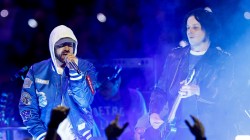
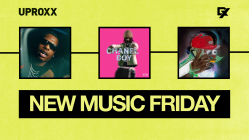
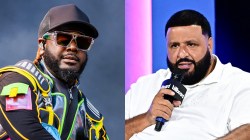
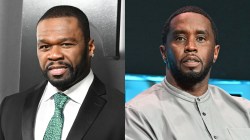
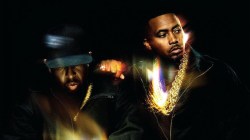

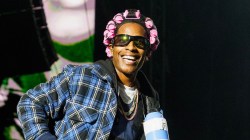
More of that Q33ur Hop. Charlemagne should be happy now.
Universal music is full of shit
When yall post lyrics yall always split couplets up. It’s stupid as shit. WHERE THE RHYME AT